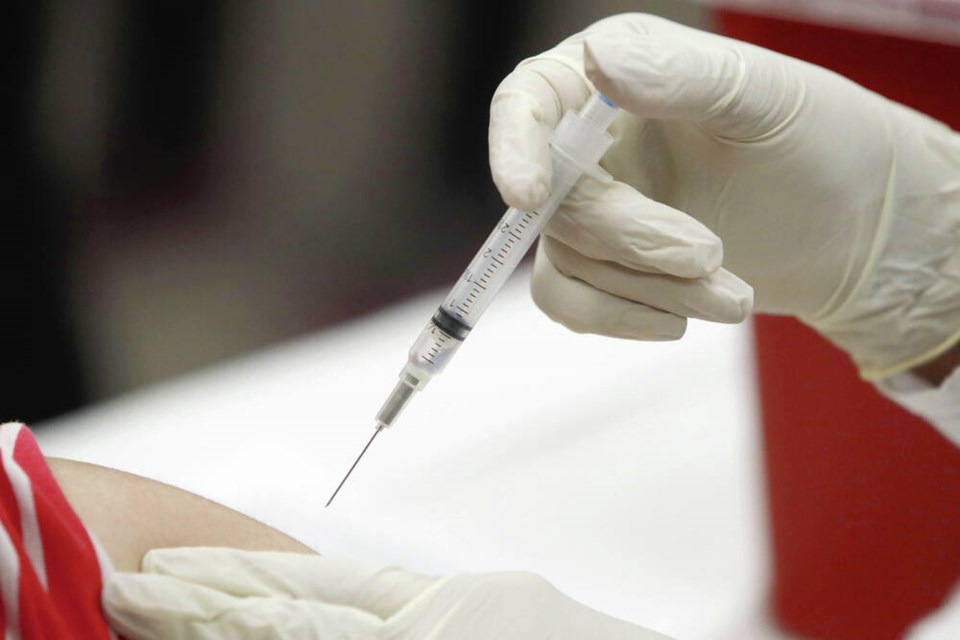The rationale for limiting the privileges of the unvaccinated from a public health perspective was to reduce the risk of transmission of COVID-19. This was based on evidence during the Delta wave of infection primarily among the unvaccinated and risk therefore posed by them to others.
As the Omicron wave evolves, it is clear transmission is not restricted to the unvaccinated. Indeed, there is increasing concern the virus is spreading unchecked. The more it becomes ubiquitous, the less justified the restriction of freedoms and privileges of the unvaccinated on the basis of risk they pose to others.
But there is yet rationale for continuing such restrictions: There is reduced risk of infection among vaccinated persons (especially with boosters), but many of those remain vulnerable to serious illness if infected.
And it is also necessary to reduce the risk of exposure among unvaccinated individuals. This is crucial, since the unvaccinated remain disproportionately at risk for severe illness with COVID-19, even the Omicron variant, despite its causing only mild illness in the vast majority.
Mild illness is especially likely among fully vaccinated, who may be unaware of infection, yet at risk of transmission. Reducing exposure of the unvaccinated even to those who are fully immunized protects the unvaccinated.
Many view restriction of the freedoms and privileges of the unvaccinated to be reasonable “punishment” for their choice not to receive immunization. But that does not acknowledge their inviolable right to refuse intervention.
Should there be consequences to exercising such a choice?
Provincial data does not fully reflect the burden of COVID-19 illness. For example, as of Jan. 15, in our ICU, there were eight patients with COVID-19, seven of them unvaccinated. Most are no longer infectious, but still are critically ill as the result of COVID-19 infection.
Where our average length of stay of non-COVID-19 illness is fewer than 10 days, this cohort has been in ICU for an average of 34 days. This is not atypical. And even after leaving ICU, if they survive, such patients frequently require weeks more of hospitalization and weeks further unable to work.
The sheer cost to society is significant and disproportionate compared with many other critically ill patients and costs of those fully vaccinated.
Our health-care system is designed to be universal in access. Most of the illness we deal with is related to risky or poor choices we are all guilty of making: Overeating, inadequate exercise, smoking, speeding, excessive drinking, drug use. Our system accommodates our frailties as human beings.
But the burden of COVID-19 disease, particularly among the unvaccinated, strains our system and has resulted in loss of access to others who are in need of care. The freedom to choose not to be vaccinated thus infringes on the rights of others to life and security of person: The costs of vaccine refusal are more than economic.
Obviously, some pay a considerable price — even death — for their choice not to be vaccinated. That is a tragedy, especially when such an outcome is largely preventable.
A tax or similar penalty for refusing vaccination can be both an incentive to change behaviour and pecuniary if not. Such consequence for exercising one’s choice to assume risk or incur negative impact on society has clear precedent: It is the basis for “sin” taxes on tobacco and alcohol and underpins carbon taxing. And it does not restrict freedoms or health-care access.
But as a blunt tool, such policy has negative consequences as well. There are myriad reasons why people choose not to be vaccinated. There are vocal “anti-vaxxers” who refuse to accept the science of vaccination or feel the issue is about rights.
Yet there are some who are confused by conflicting messages or believe they cannot be immunized; others are distrustful of a system which has been historically abusive; still others cannot access vaccination because of disengagement, mental illness, drug addiction or homelessness. They are often the marginalized.
Most, I think, would agree that people in the latter group need renewed effort to persuade and reassure of the safety and efficacy of vaccination, and better access, not punishment.
It is not unreasonable to implement consequences for choosing to refuse vaccination, given the cost economically and in loss of access to care, a cost the rest of us must bear.
But the unvaccinated deserve our compassion, the best care we can deliver, and incentives and penalties that are measured, proportionate, considerate of the many reasons for choosing not to be vaccinated, and have the least impact on rights and freedoms.
- - -
To comment on this article, email a letter to the editor: [email protected]



